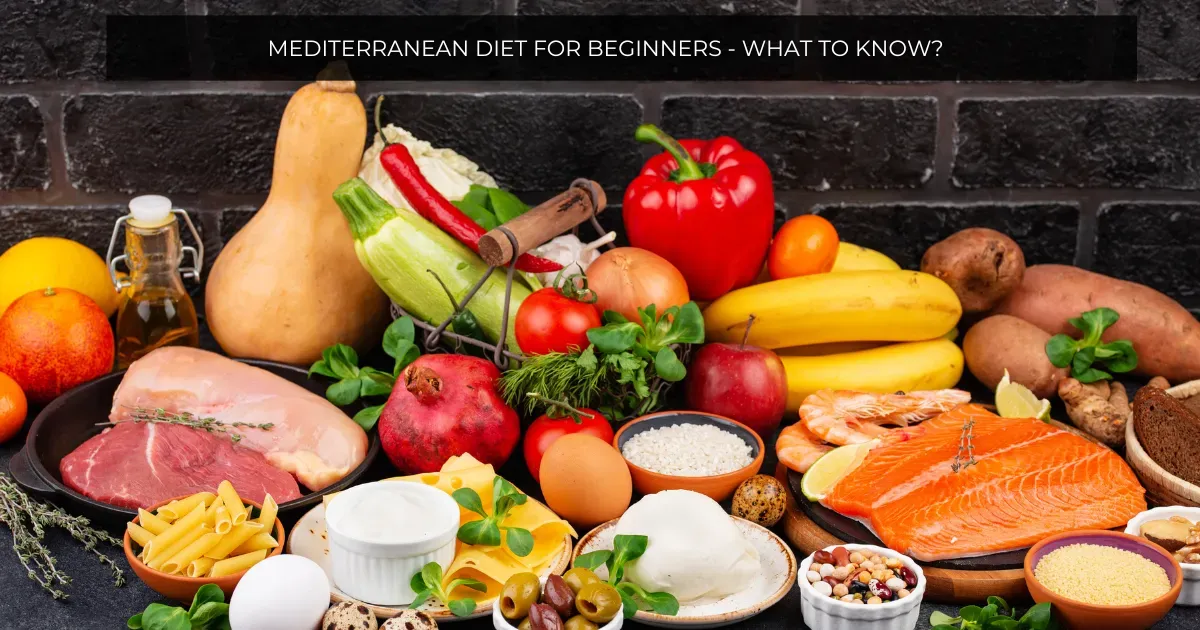Exploring The Diverse Flavors Of Mediterranean Cuisine
Are you tired of the same old meals and looking to add some spice to your culinary repertoire? Look no further than the rich world of Mediterranean cuisine.
Mediterranean cuisine is bursting with bold flavors and vibrant ingredients, offering a unique and diverse culinary experience that will leave your taste buds begging for more.
From the sun-drenched shores of Greece to the aromatic markets of Morocco, the Mediterranean region is a treasure trove of culinary delights. Whether you're a fan of fresh seafood, fragrant herbs, or hearty grains, there is something for everyone in this gastronomic wonderland.
In this article, we will explore the vibrant flavors, traditional dishes, and health benefits of Mediterranean cuisine, providing you with all the inspiration you need to embark on a culinary journey. So grab your apron and get ready to tantalize your taste buds with the vibrant flavors of the Mediterranean.
Whether you're a seasoned chef or a kitchen novice, now is the perfect time to explore the flavors of the Mediterranean and (getButton) #icon=(link) #color=(#2339bd) #text=(bring a taste of the Mediterranean into your home). Get ready to embark on a culinary adventure like no other.
Historical Significance and Influence:
- The roots of Mediterranean cuisine extend back to ancient civilizations, including the Greeks, Romans, and Phoenicians.
- These cultures heavily influenced their region and culinary traditions worldwide, introducing ingredients such as olives, grapes, and wheat, as well as cooking techniques that form the basis of modern Mediterranean cooking.
Key Ingredients in Mediterranean Cooking
Mediterranean Cuisine - Essentials
Olive Oil
Known as liquid gold, olive oil is a staple of the Mediterranean diet. It’s rich in monounsaturated fats and antioxidants, supporting heart health and enhancing flavor.
Fresh Vegetables
Tomatoes, zucchini, peppers, onions, and leafy greens are foundational. They're eaten fresh, grilled, or sautéed, offering essential vitamins, minerals, and fiber.
Seafood
Fish like sardines, mackerel, and sea bass are rich in lean protein and omega-3 fatty acids.
Learn more about omega-3 benefitsLegumes
Chickpeas, lentils, and beans are high in protein and fiber. They’re featured in stews, soups, and salads across Mediterranean cultures.
Nuts & Seeds
Almonds, (getButton) #icon=(link) #color=(#ff502f) #text=(walnuts), pine nuts, and sesame seeds add texture and nutrition. They're key ingredients in sauces like tahini.
Herbs & Spices
Fresh herbs like (getButton) #icon=(link) #color=(#ff502f) #text=(basil), mint, rosemary, and cilantro with spices like saffron and cumin, enhance flavor naturally.
Whole Grains
Bulgur, farro, and barley—along with bread and pasta—provide fiber and serve as hearty foundations for meals.
Dairy
Yogurt, feta, and halloumi add creamy texture and protein. (getButton) #icon=(link) #color=(#ff502f) #text=(Greek yogurt) is especially nutrient-dense and gut-friendly.
Mediterranean Cuisine & Diet - The Basis
| Topic | Description |
|---|---|
| Health Benefits | The Mediterranean diet supports long-term health. It helps reduce risks of (getButton) #icon=(link) #color=(#2339bd) #text=(heart disease, stroke, and some cancers) thanks to antioxidant-rich ingredients and healthy fats. |
| Regional Variations | Each Mediterranean country adds its own flavor: Greece (moussaka), Italy (pasta), Spain (paella), and (getButton) #icon=(link) #color=(#2339bd) #text=(Morocco's tagines) all reflect local traditions. |
| Cooking Techniques | Grilling, roasting, and slow braising highlight fresh ingredients. These methods enhance natural flavor without heavy sauces or frying. |
| Fresh & Seasonal | Eating with the seasons ensures better taste, higher nutrients, and supports local farmers. Mediterranean diets thrive on local availability. |
| Cultural Aspects | Meals are shared, slow, and social. The Mediterranean table promotes connection, conversation, and celebration of food and life. |
| Iconic Dishes | Famous recipes include moussaka, pasta dishes, and (getButton) #icon=(link) #color=(#2339bd) #text=(Spanish paella, which combines saffron rice) with seafood or meats. |
| Sustainability | Locally sourced ingredients support biodiversity and traditional farming practices. Mediterranean cuisine promotes a lower environmental footprint. |
| Infusing Flavors | Start small: Cook with olive oil, add herbs like oregano and thyme, and use grains like couscous or farro to give everyday meals a Mediterranean twist. |
| Wine & Beverages | (getButton) #icon=(link) #color=(#ff502f) #text=(Wine is often a part of Mediterranean meals). Herbal teas like Moroccan mint tea are also common, refreshing, and beneficial. |
| Traditional Desserts | Baklava and (getButton) #icon=(link) #color=(#ff502f) #text=(an Italian classic)">Italian tiramisu offer a sweet ending. These treats use natural sweeteners like honey, nuts, and coffee for flavor. |
- These ingredients, integral to Mediterranean cooking, are crucial to creating its signature dishes, which are flavorful and inherently healthy.
3. Health Benefits of the Mediterranean Diet:
- The Mediterranean diet isn't just about weight; it's a holistic approach to health. Research shows that it can reduce the risk of (getButton) #icon=(link) #color=(#2339bd) #text=(heart disease, stroke, and certain cancers). The emphasis on olive oil, fruits, vegetables, and lean proteins provides essential nutrients and antioxidants, while moderate wine consumption offers potential cardiovascular benefits.
Mediterranean Lifestyle & Influence on Vegetarian Diets:
The Mediterranean lifestyle is about balance. It encourages regular physical activity, leisurely meals, and relaxation, mirroring the laid-back (getButton) #icon=(link) #color=(#2339bd) #text=(Mediterranean way of life).Mediterranean cuisine isn't just about eating; it's a celebration of life's simple pleasures, a reflection of history and culture, and a path to both culinary and holistic well-being.
Whether you're enjoying a (getButton) #icon=(link) #color=(#2339bd) #text=(Greek salad with a view of the Aegean Sea), sipping espresso at an Italian café, or savoring a Moroccan tagine in a bustling market, you're participating in a tradition that has stood the test of time.
Best for Omega-3s
Mackerel, Trout, Sardines
Lowest Mercury
Sardines, Anchovies, Trout
Caution for Mercury
Swordfish, Tuna (especially albacore), King Mackerel
Great for Bone Health
Sardines, Anchovies
High Sodium Risk
Anchovies, canned sardines
High Cholesterol
Lobster



